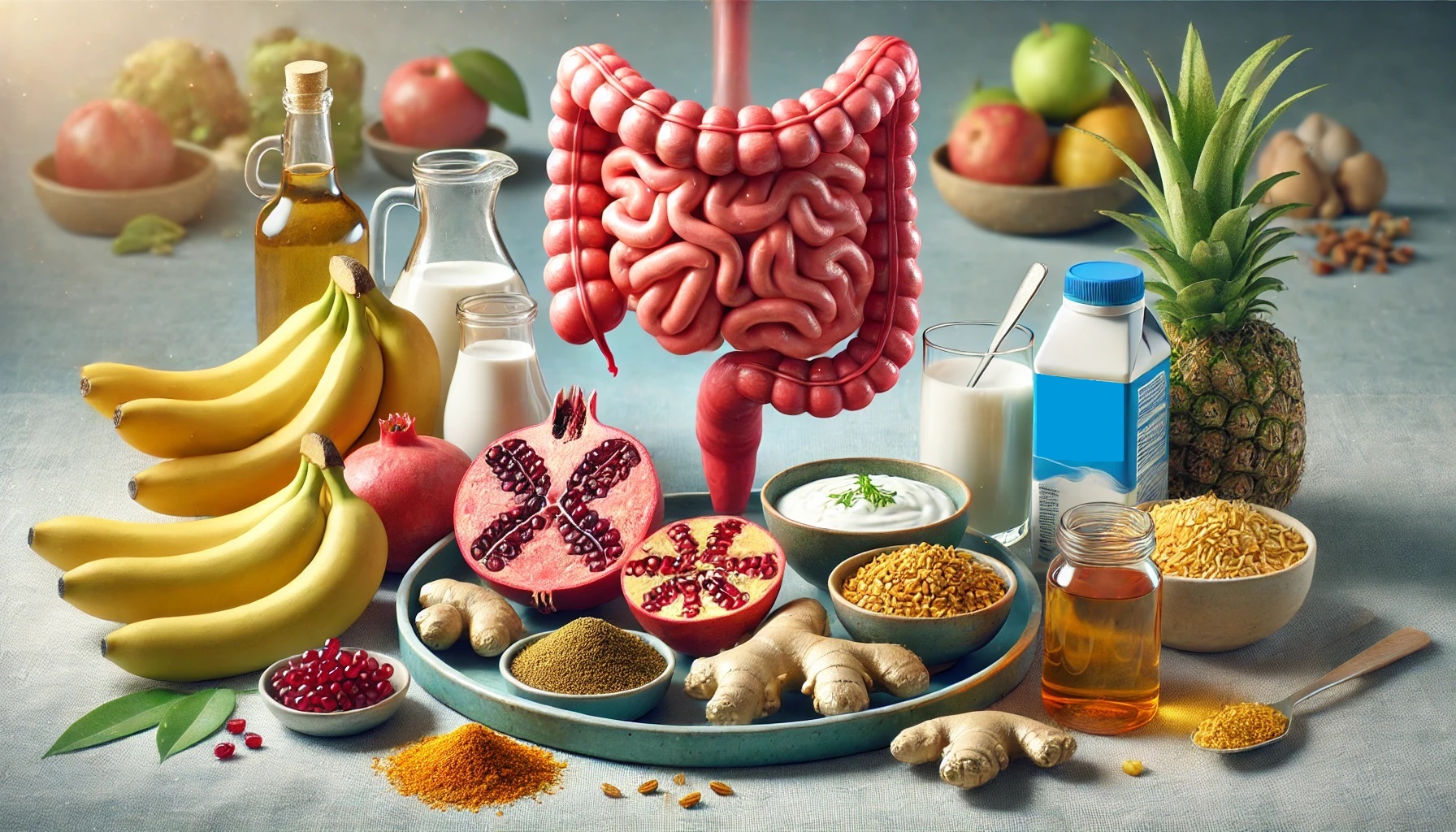Ulcerative Colitis Diet: An Overview
This post was written with Consensus AI Academic Search Engine – please read our Disclaimer at the end of this article. Ulcerative colitis (UC) is a chronic inflammatory bowel disease characterized by inflammation of the colon and rectum. Diet plays a crucial role in managing UC, influencing both the gut microbiome and inflammation levels. This article explores various dietary interventions and their impacts on UC, based on recent research findings.
Low-Fat, High-Fiber Diet
A study investigated the effects of a low-fat, high-fiber diet (LFD) compared to an improved standard American diet (iSAD) in patients with UC. The LFD significantly improved quality of life and reduced markers of inflammation and intestinal dysbiosis. Specifically, the LFD decreased serum amyloid A and C-reactive protein levels, and altered the gut microbiome by increasing beneficial bacteria like Faecalibacterium prausnitzii1.
Mediterranean Diet Pattern
The Mediterranean Diet Pattern (MDP) has been shown to improve intestinal inflammation and reshape the gut microbiome in UC patients. A randomized controlled trial found that the MDP increased levels of short-chain fatty acids (SCFAs) and beneficial microbial species, while reducing fecal calprotectin levels, a marker of inflammation. This diet was well-tolerated and recommended as a maintenance diet for UC patients in remission2 5.
Anti-Inflammatory Diet
An anti-inflammatory diet (AID) designed to increase intake of fiber, probiotics, antioxidants, and omega-3 fatty acids, while reducing red meat and added sugars, was effective in preventing subclinical inflammation in UC patients. The AID group showed significant changes in the metabolome and gut microbiota, with increased levels of beneficial bacteria and anti-inflammatory metabolites3.
Low FODMAP Diet
A low FODMAP diet, which restricts fermentable oligosaccharides, disaccharides, monosaccharides, and polyols, may alleviate symptoms of UC by reducing systemic and intestinal inflammation. This diet also alters the gut microbiota, potentially benefiting patients with mild to moderate UC4.
IgG-Guided Exclusion Diet
A prospective study evaluated the impact of an IgG-guided exclusion diet on UC symptoms and quality of life. Patients following this diet showed significant improvements in disease activity and nutritional status compared to a control group. The exclusion diet reduced the Mayo score and extraintestinal manifestations, suggesting its potential as a dietary intervention for UC6.
Specific Food Interventions
Research on specific food products, such as a baked corn and bean snack and anthocyanin-containing purple potatoes, demonstrated their anti-inflammatory effects in animal models of UC. These foods reduced inflammation markers and altered gut microbiota composition, indicating their potential as dietary supplements for UC management7 8.
Dietary Advice and Education
Providing dietary advice and education to UC patients can significantly reduce disease activity and improve quality of life. Studies have shown that tailored dietary guidelines, focusing on balanced nutrition and specific dietary patterns, can help manage UC symptoms and reduce the need for medications like steroids9 10.
Conclusion
Dietary interventions play a vital role in managing ulcerative colitis. Various diets, including low-fat, high-fiber, Mediterranean, anti-inflammatory, and low FODMAP diets, have shown promising results in reducing inflammation and improving quality of life in UC patients. Tailored dietary advice and education are essential for optimizing these benefits and ensuring nutritional adequacy.
Disclaimer
The content presented in this blog is generated by Consensus, an AI-powered academic search engine, and is based on publicly available scientific literature. While every effort is made to provide accurate, up-to-date, and well-researched information, the content is intended for informational and educational purposes only. It does not constitute medical advice, diagnosis, or treatment. Always consult a qualified healthcare professional before making any decisions regarding medical conditions, treatments, or medications. The AI system’s analysis may not cover all perspectives, emerging research, or individual cases, and it is not a substitute for professional expertise. Neither the blog publisher nor the developers of the AI-powered search engine are responsible for any actions taken based on the information provided in this content. Use of this information is at your own risk. Citations to the original scientific studies are included for reference, but these studies should be reviewed in full and interpreted with the guidance of a healthcare or research professional.
If you are experiencing a medical emergency, please seek immediate attention from a healthcare provider.
